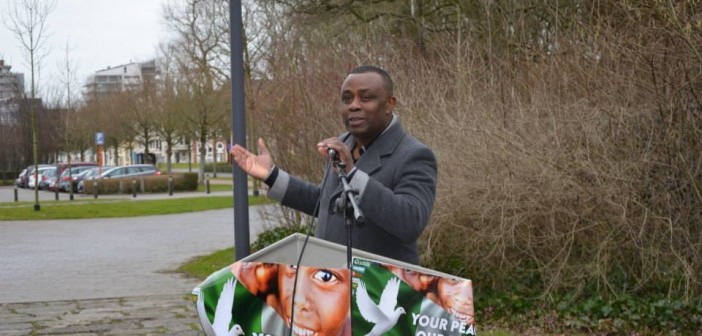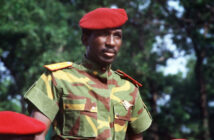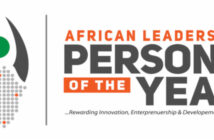Statement by Collins Nweke. Hon. Collins Nweke is a Councillor at Ostend city council in Belgium. He recently helped organize, ‘The Peace March For Nigeria’ in Belgium.
The level of perception, participation of Nigerians in Diaspora in the 2015 polls.
There is no fancy way of saying that Nigerians in Diaspora are bitterly unsatisfied with the way the 2015 polls are playing out. For a start, everywhere President Goodluck Jonathan went soon after he was elected into office for his first term; he was happy to declare his support for Diaspora Voting and the Diaspora Commission and was confident in asserting that Nigerians resident abroad, the Diaspora, should be able to vote from their locations abroad in the elections of 2015. So, we are grossly unhappy that we are yet again spectators in a game where we should be active players. Some would put the blame squarely on the table of Mr President, yet others will tell you that if the House Committee on Diaspora Affairs did its job well or that if the Diaspora as a lobbying force was fit for purpose, Diaspora Voting and Diaspora Commission would have been operational by now. But you know what? I won’t waste your valuable time on an analysis of whose fault it is but would rather say that the blame goes round to all of the named stakeholders. It does tilt a bit towards the side of Mr President because I have looked straight into his eyes in a couple of meetings both in London and in Brussels and believed him without questions when he said that he is genuinely for Diaspora Voting. Maybe the word here is indecision but then when you consider what this gentleman has had to deal with, particularly the escalation of hostility by Boko Haram, you just want to be realistic and constructive and prefer to simply look forward. At least we know that the President is all for Diaspora Voting but the big question is what about the opposition APC? Is General Mohamadu Buhari a proponent of Diaspora Voting or is he against? Because the ongoing campaign is clearly devoid of content, nobody is asking these important questions. Important because if the Diaspora decides to withhold the over 30 billion US Dollar that they remit annually to Nigeria, the economy will feel the crack. So, no, the Diaspora doesn’t perceive themselves as involved because the country has sat on their participation tool: their vote and that is not good!
Do you think Nigerian government; INEC and other bodies have done enough in creating the right awareness for Nigerians abroad for the forthcoming elections?
The awareness that the Diaspora wants created is the removal of all obstacles standing in the way of their rights to vote and be voted for in elections in Nigeria. The INEC Chairman Prof. Jega is on records as supporting the Diaspora Voting but of course he has no legislative powers. Only the National Assembly does have the powers to pass the needed legislation which INEC simply has to execute. I know that some will be quick to point out that if INEC is unable to comfortably manage the election processes in Nigeria with voter registration, issuance of Private Voting Cards and other matters, how are they able to cope with Diaspora Voting? Of course that’s a mischievous question because the two processes have different dynamics. As a matter of fact, in the proposal that was worked out under my Chairmanship of Nigerians in Diaspora Europe, we had a water-tight, time-sensitive and highly efficient voting system on the basis of shared responsibility, accountability, monitoring and then evaluation. Some Nigerian Diaspora are election experts and officers in some of the top economies of the world and are instrumental in the design of the most advanced and complex election systems and processes. These patriots are willing but also able to place all of these skills, know-how and expertise at the disposal of Nigeria, not only to get the Diaspora Voting right but also the entire gamut of the election apparatus in Nigeria. Here is the question: will they get the chance to help the fatherland? Even right there in Nigeria, the best brains remain unmined while we settle for the mediocrity that is obviously not doing us much good.
What should INEC or Nigerian government do that you think is left undone?
I do not see how at least a 95% readiness rate for the election can be achieved if in the two weeks left, huge dedicated manpower is not deployed by INEC to clear up existing backlogs. Government and opposition need to grow up, be responsible and patriotic. You can’t play politics with everything. INEC being truly independent (I know some would declare me naïve for daring to suggest that INEC is independent) Government and opposition should be united in their quest to facilitate their work rather than this never-ending trading of blames and insult. Government, but also opposition owes it to the good people of Nigeria during this last week to respect the principles of responsible politicking, call their minders to order and run to the finishing line of the race based on content and not personal insults. Let’s not forget that the electorate and the media have their roles cut out for them too. Penetrating questions should be raised: over the economy, poverty alleviation strategy, the criminally high youth unemployment, the non-oil economic stimulation strategy, strengthening of democratic institutions, the energy sector, infrastructural development, et cetera. These are things that keep Nigerians awake at night and the goal of purposeful politics is to address these issues. It is still possible to get Nigerians to forgive the sins on both sides if they reapply themselves more credibly during this last couple of weeks.
That said, I guess I must add that by the time all of these are evaluated, we might come to the conclusion that INEC and the nation did learn useful lessons while trying to give Nigeria a free and fair election and that such lessons hopefully would be carried on to perfect the next elections. Let’s remember that ours is an evolving democracy and like all evolving things, it needs time to be nurtured.




